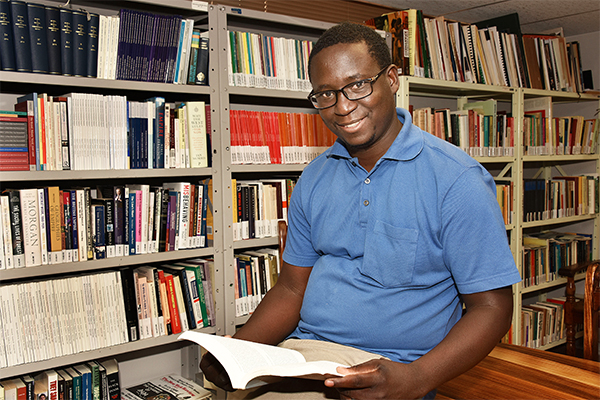Latest News Archive
Please select Category, Year, and then Month to display items
![]()
With the University of the Free State (UFS) academic programme suspended and following guidelines by the UFS Coronavirus (COVID-19/SARS-CoV-2) Task Team to minimise the gathering of people in one place, all UFS libraries will be closed from Friday 20 March to Monday 13 April 2020.
During this time, staff and students will not have any access to the following campus and branch libraries of the UFS Library and Information Services:
• Sasol Library (Bloemfontein Campus)
• Neville Alexander Library (South Campus)
• TK Mopeli Library (Qwaqwa Campus)
• Frik Scott Medical Library (Bloemfontein Campus)
• Music Library (Bloemfontein Campus)
The university community is advised as follows:
• Use Wednesday (18 March) and Thursday (19 March) to borrow books you might need during the long recess. During these two days, students are advised to take precautionary measures and avoid sitting in groups that might compromise their health.
• During this time, all due dates for borrowed material will be automatically extended, no late fines will be charged, and patrons can return material when libraries reopen.
• Please make use of the ‘Ask-a-Librarian’ service for any assistance you might require (go to the UFS Library and Information Services website – click Library Services – click Ask-a-Librarian); OR use the UFS Library social media.
• The UFS Library and Information Services will also be available on a new ‘LiveChat’ service accessible here (listed under Resources – LibGuides). With this service, you can connect ‘live’ with your information librarian.
• All planned activities for the South African Library Week are postponed until further notice.
Land a fertile field for historians
2017-12-25

Dr Admire Mseba, historian and researcher in the International Studies Group (ISG).
Photo: Charl Devenish
The use of land and the economics of Southern Africa at present is a contentious subject at almost every level of society. A historian and researcher who revels in happenings in these two areas, is Dr Admire Mseba, a postdoctoral research fellow in the International Studies Group (ISG) at the UFS.
Dr Mseba grew up in the Mberengwa region in southern Zimbabwe, known for cattle farming and mineral mining. While at the University of Zimbabwe, he became interested in economic history and archaeology, and completed his PhD at the University of Iowa in the USA. During his time there, Dr Mseba also became passionate about environmental history.
A historian's ability to think and engage critically on diverse subjects drew Dr Mseba to his field. Currently, he is busy with three research projects. Firstly, he is working on a book on social relations, about access to land in Zimbabwe. He is also examining regional and national efforts to control migratory pests during the 20th century, in particular, the red locust. In collaboration with a colleague at the ISG, Dr Mseba is also researching monetary systems in central Africa, covering the present-day countries of Zimbabwe, Malawi, and Zambia.
Dr Mseba believes future research opportunities in the domains of economic and environmental history abound. For one, the land question has been very topical in Zimbabwe for more than a decade—as it is now in South Africa—and needs more scrutiny. Regarding agrarian pestilences, he indicates the recent phenomenon of armyworm invasion. “There are so many opportunities for historians to investigate. There are so many ways to think about these things and trying to put it in perspective.”